…Tomorrow and tomorrow and tomorrow
Creeps in this petty pace from day to day
To the last syllable of recorded time
And all our yesterdays have lighted fools
The way to dusty death…
William Shakespeare, Macbeth
Goddamn it, get in and gety those files. Blow the safe and get it…
Richard Nixon’s instructions that instigated Watergate
No Time to Think, from 1978’s Street Legal, is one of Bob Dylan’s most painful and emotionally wrought works. He has never played it in concert and there are few cover versions. None are by well known artists. Its narrator (who mainly refers to himself in the second person) is deeply troubled, not only because of his own situation but also with the state of the world. The song is a medium paced waltz, anchored by a repetitive drum pattern. All nine verses and choruses follow an identical rhythmic and lyrical structure. Dylan’s vocals also maintain more or less the same tempo. At the end of every verse, sax player Steve Douglas plays a light counter melody with little variation. Three female vocalists back him up on the choruses, which mostly begin with four abstract nouns and end with the repeated refrain of the title phrase. The repetitive musical and lyrical format emphasises the narrator’s disturbed state of mind, from which it seems there is no escape. He presents himself as an unpleasant, completely self absorbed and potentially violent character.
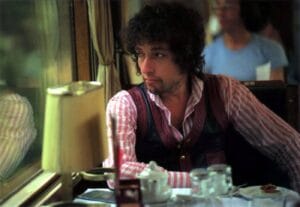
As well as making a number of literary allusions, the song also seems to be influenced by the techniques of modern art, especially the work of Picasso. In Tangled Up in Blue and some of the other songs from Blood on the Tracks, Dylan had introduced a ‘cubist’ perspective through which events were seen from different viewpoints. Here the verses are presented more as a series of abstract impressions, all building up a picture of one person, or possibly a series of people. As in the album opener Changing of the Guards, Dylan makes a number of overt and covert references to the symbolic characters of the Tarot, a system through which individuals confront specific archetypal character types in order to discover the nature of their own personalities and thus, perhaps, their own individual destinies. But whereas that song ends in a kind of triumph, the narrator of No Time to Think seems to have laid out a particularly negative spread.
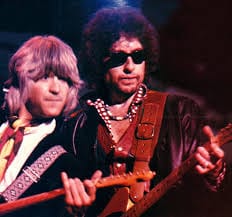
The song begins …In death you face life… immediately suggesting that the narrator may be on his death bed, looking back on all his unresolved, uncomfortable issues. Various allusions in the first verse and the following chorus appear to evoke Shakespeare’s Macbeth. The narrator has a …wife/ Who sleepwalks through your dreams into walls… which recalls Lady Macbeth’s descent into madness as she attempts to assuage her guilt over the regicide of Duncan. Like Macbeth, the narrator thinks of himself as a ‘soldier of mercy’ who concludes that …Who cannot be trusted must fall… As Macbeth’s paranoia grows this logic, he even applies this logic to his best friend Banquo, who he has murdered. In a more obvious allusion, Dylan sings …You fight for the throne and you travel alone/ Unknown as you slowly sink/ And there’s no time to think…The first list in the chorus begins with: …Loneliness, tenderness, high society, notoriety… As the early scenes with his wife show, Macbeth is certainly capable of tenderness, which is why he is such a movingly tragic figure. He certainly achieves notoriety when he murders his way into ‘high society’. In the end he cuts a lonely and isolated figure. The opening of the song thus identifies the narrator as a potentially honourable character who, like Macbeth, is becoming utterly corrupted.

LADY MACBETH
In next four verses we may imagine that the song’s protagonist has laid out his Tarot deck and is meditating on specific figures. We are told that …The empress attracts you but oppression distracts you/ And it makes you feel violent and strange… In the Tarot, the Empress is an Earth Mother figure who radiates love and warmth. But the Ten of Wands is a violent character who is identified as a figure of oppression. The narrator, like Macbeth, is caught between these cosmic forces, but the negative elements appear to be winning out. We are transported to the ‘Federal City’, which may refer either to Washington D.C. or any American state capital, but is certainly a site for potential political corruption. The narrator is said to have …been blown and shown pity/ In secret for pieces of change… and to have been …betrayed by a kiss on a cool night of bliss… The mention of ‘pieces of change’ and being ‘betrayed by a kiss’ evoke the character of Judas Iscariot, another archetypal figure whom the narrator appears to be comparing himself to.

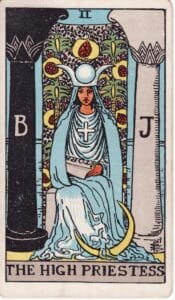
TEN OF WANDS
In succeeding verses the narrator continues to be caught between good and evil forces. He tells himself that …the country priestess will want you/ Her worst is better than best… The ‘country priestess’ may refer to the High Priestess, another positive figure from the Tarot, who represents intuition and depth of feeling. But the narrator appears to be under the spell of the darker figure of the Magician, who we are informed is … quicker and his game/ Is much thicker than blood and blacker than ink… The narrator tells himself that …Mercury rules you and destiny fools you… Mercury, who in Ancient Roman mythology is the messenger of the gods, is generally associated with the Magician. The first lines of the choruses depict the contradictory elements that are competing for his soul …Memory, ecstasy… is succeeded by …tyranny, hypocrisy, while the following sequence of…China doll… (representing fragility) …alcohol, duality, mortality…. suggests that he is losing his inner struggle against the dark forces. The next litany: …Paradise, sacrifice, mortality, reality… again takes us through a sequence of disillusionment. ‘Paradise’ here is certainly being lost.
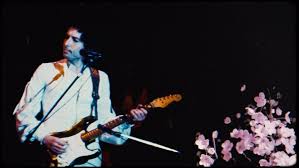
On certain lines, in a Picasso-like change of perspective, Dylan briefly switches to a first person address …I’ve seen all these decoys through a set of deep turquoise eyes… he sings. Dylan’s eyes are famously blue. We may wonder whether he is interjecting his own perspective here. If so the confession that follows…I feel so depressed… indicates that although he ‘sees through’ all the false promises that the Magician is making, he sees no way out of his situation. Further evidence of his own corrupted state follows …Your conscience betrayed you when some tyrant waylaid you/ Where the lion lies down with the lamb… presents another dichotomy. ‘The lion lies down with the lamb’ is a quasi-Biblical phrase depicting a paradisiacal state, but which has clearly been corrupted. In response the ‘I’ figure declares, rather startlingly, as if he is some ‘hard case’ Mafia don, that …I’d have paid (off) the traitor and killed him much later/ But that’s just the way that I am… He seems to be showing his true colours here. The Magician now has him under his control. We hear that …Vomit and jealousy’s all that he sells us/ He’s content when you’re under his thumb…. The narrator continues to try to think positively, yearning for …Equality, liberty, humility, simplicity… But this is futile. In lines that in their shifting perspectives again recall a cubist painting, it is suggested that …You glance through the mirror and there’s eyes staring clear/ At the back of your head as you drink/ And there’s no time to think…
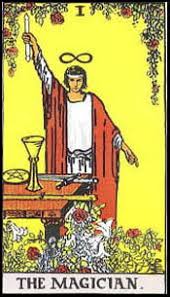
‘No time to think’ indeed. The following verses depict a descent into hopelessness, in which the narrator is inexorably drawn towards a state of depression and possible madness. We hear that …You’ve murdered your vanity, buried your sanity… a line which recalls …Macbeth hath murdered sleep… a confession of the guilt that will lead to both himself and his wife losing their grip on reality. The narrator tells himself that he must now resist all pleasures, especially those of the flesh. He confesses that …lovers obey you but they cannot sway you… which is rhymed with the devastating …They’re not even sure you exist… The narrator’s reason for living is now so opaque that he seems to be becoming transparent. He is fading away like a ghost. Political and social ideologies like …Socialism, hypnotism, patriotism, materialism…. are of no use, the product of …Fools making laws for the breaking of jaws…
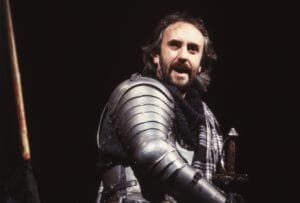
‘MACBETH HATH MURDERED SLEEP’
Now there is nowhere to run. The narrator’s destiny is fixed. The tense enjambed lines…The bridge that you travel on goes to the Babylon/Girl with the rose in her hair… may indicate that he is contemplating the Tarot card ‘Strength’, which features a girl who wears roses in her hair. A lion (who has presumably ‘laid down with the lamb’) sits peacefully on her lap. The narrator glimpses some hope in the form of ‘starlight in the East’, which is commonly associated with Venus, the Roman goddess of love. But he remains …stranded with nothing to share… in Babylon, the Biblical paradigm of a crooked and evil political system which at this time was often being referenced by Bob Marley and other Rastafarian singers. Dylan’s cynical distrust of the machinations of political institutions is well known. Perhaps the narrator is a politician who has been utterly corrupted by such systems. America in the 1970s had a prime example of such a figure in the disgraced President Richard Nixon, who was forced to resign after the Watergate scandal.

RICHARD NIXON
Finally, the narrator is depicted as being spiritually bereft. He has been ‘stripped of all virtue’ and reduced to penury and desperation. Any compassion he had for others has deserted him. We are told that, as he ‘crawls through the dirt’, he can ‘give but he cannot receive’. The concluding chorus employs repetition and internal rhymes to emphasise that he has indeed finally run out of time. He has …No time to choose when the truth must die/ No time to lose or say goodbye… and, more disturbingly …No time to prepare for the victim that’s there/ No time to suffer or blink/ And no time to think… It seems that, like Macbeth, or Nixon, or even Hitler, he is now trapped …’til the last syllable of recorded time… in a state of utter amorality. Mass murder or holocausts may follow.
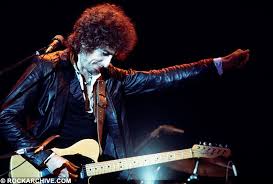
Many commentators have linked the moral and spiritual confusion displayed in the songs of Street Legal as indicators of an inner malaise that can be linked to Dylan’s sudden conversion to Christianity – which will occur towards the end of the 1978 tour, just a few months after Street Legal was released. The narrators he sings through on the album are desperately in search of spiritual clarity. In No Time to Think he portrays a character who has experienced a kind of spiritual death. Dylan is profoundly influenced by symbolist poets like Rimbaud, Verlaine, Poe and Blake. But now he finds the ambiguity of symbolism itself not empowering but overwhelming, even suffocating… In No Time to Think he appears to be overburdened by the demands of being regarded as a ‘visionary’ by his followers. In order to try to resolve this problem, he has tried to explore the arcane symbolism of the Tarot. But he struggles to see a clear path through the densely overlapping symbolism that the cards represent.
Perhaps, ironically, he has been thinking too much.


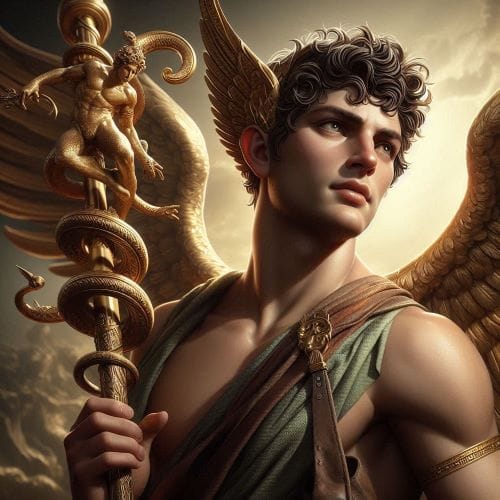
Leave a Reply